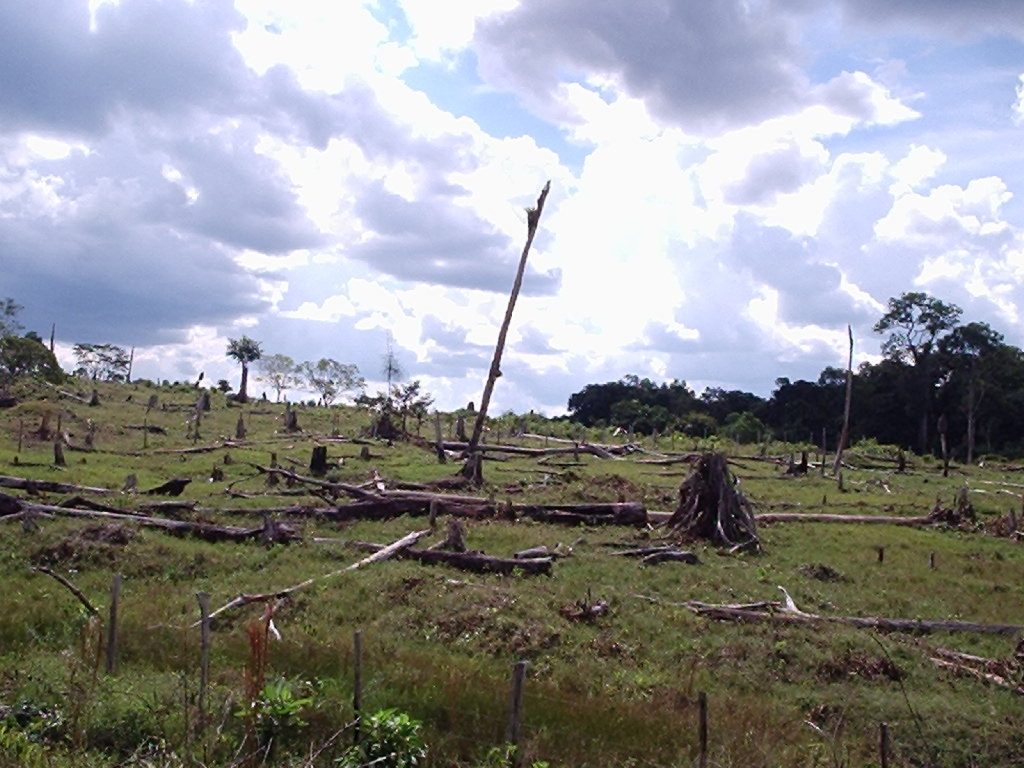
Deforestation in Nigeria is a growing concern that threatens the balance of nature, human livelihood, and the future of the country’s environment. Nigeria once boasted a large expanse of tropical rainforests and savanna woodlands, but these are rapidly disappearing due to various human and natural activities. Forests provide vital ecosystem services such as carbon storage, water purification, soil fertility, and wildlife habitats. The continued loss of forests is one of the major environmental problems in Nigeria today, with far-reaching consequences.
Table of Contents
- Introduction
- Meaning of Deforestation
- Causes of Deforestation in Nigeria
- Effects of Deforestation in Nigeria
- Control Measures Against Deforestation
- Government and Community Roles
- Revision Questions and Answers
- Conclusion
Meaning of Deforestation
Deforestation refers to the deliberate or accidental removal of forest vegetation, primarily due to human activities such as logging, farming, or urban development. It involves the clearing of trees without adequate replanting or natural regeneration, leading to the permanent destruction of forest cover. In Nigeria, this often occurs in both rural areas (due to agricultural expansion) and urban centers (due to construction and infrastructure development).
READ ALSO – Soil Degradation in Nigeria: Causes, Types, and Prevention
Causes of Deforestation in Nigeria
Several interrelated factors contribute to the high rate of deforestation in Nigeria. These include:
- Logging and Timber Harvesting: Illegal and unregulated logging activities are rampant in many Nigerian forests, especially for timber export and domestic furniture production.
- Agricultural Expansion: As the population grows, more forests are cleared for farming. Shifting cultivation and bush burning also contribute to forest loss.
- Urbanization and Infrastructure Development: Expanding cities, road construction, and housing developments encroach on forested areas.
- Fuelwood and Charcoal Production: Many rural and urban households in Nigeria depend on wood for cooking and heating, leading to excessive tree felling.
- Mining and Oil Exploration: Activities like open-pit mining and oil pipeline installations often destroy large tracts of forest.
- Overgrazing by Livestock: This depletes the vegetative cover, especially in the northern parts of Nigeria, making it hard for forests to regenerate.
Effects of Deforestation in Nigeria
Environmental Effects
One of the most direct consequences of deforestation in Nigeria is environmental degradation. Trees play a critical role in regulating the water cycle, preventing erosion, and maintaining the carbon balance. When forests are removed, the land becomes exposed to wind and water erosion, leading to the loss of fertile topsoil. This accelerates desertification, especially in northern Nigeria, and contributes to climate change through the release of stored carbon dioxide into the atmosphere.
Agricultural and Economic Effects
Deforestation affects agricultural productivity by reducing soil fertility and disrupting rainfall patterns, which are essential for rain-fed farming. It also threatens the livelihoods of forest-dependent communities who rely on wood, fruits, herbs, and game for survival. In the long run, the loss of forest resources leads to economic instability, especially in rural areas.
Health and Social Impacts
Forest loss can lead to the emergence of diseases as humans come into closer contact with wildlife. Deforestation also increases the risk of natural disasters, such as floods and landslides, which can cause displacement and loss of life. In some cases, deforestation leads to conflicts between farmers and herders as land becomes scarcer.
Biodiversity Loss
Nigeria is home to a rich diversity of plants and animals, many of which are endemic to its forests. When forests are cleared, the habitats of numerous species are destroyed, leading to extinction or endangerment. This loss of biodiversity affects not just nature, but also medicine, tourism, and food security.
Control Measures Against Deforestation
To combat deforestation in Nigeria, several practical and sustainable control measures can be implemented:
- Afforestation and Reforestation: Planting trees on deforested land helps restore forest cover and improves the environment.
- Sustainable Forest Management: Enforcing forest regulations and encouraging controlled logging can reduce illegal exploitation.
- Alternative Energy Sources: Promoting the use of cooking gas, solar energy, and fuel-efficient stoves can reduce the demand for firewood.
- Agroforestry: Integrating trees into farming systems helps conserve forests while maintaining agricultural productivity.
- Education and Public Awareness: Teaching people the value of forests and the dangers of deforestation can change attitudes and practices.
- Improved Land-Use Planning: Urban and rural development should consider environmental impacts and avoid unnecessary clearing of forest areas.
Government and Community Roles
The Nigerian government, through agencies like the National Environmental Standards and Regulations Enforcement Agency (NESREA), has a responsibility to enforce forest protection laws and punish defaulters. State governments must also set up forestry departments to manage their forest reserves effectively.
Communities, especially those living near forests, play a vital role in monitoring forest use and participating in conservation efforts. Traditional rulers, NGOs, and youth groups can be mobilized to take part in tree planting campaigns and forest monitoring programs.
READ ALSO – Government Environmental Policies in Nigeria and their Challenges
Conclusion – Deforestation in Nigeria
Deforestation in Nigeria is a serious issue with negative consequences for the environment, agriculture, economy, and future generations. The loss of forest cover due to logging, farming, urbanization, and fuelwood consumption must be addressed through a combination of education, policy enforcement, community involvement, and sustainable practices. If action is not taken, the country risks losing its natural heritage and environmental stability. However, with proper control measures and commitment from all sectors of society, deforestation can be significantly reduced.
SEE ALSO: Desertification in Nigeria: Causes, Effects, and Solutions
Revision Questions and Answers – Deforestation in Nigeria
1. What is deforestation?
Deforestation is the removal of forest vegetation through human or natural activities without adequate reforestation.
2. Mention three causes of deforestation in Nigeria.
- Logging and timber harvesting
- Agricultural expansion
- Urbanization and infrastructure development
3. List two environmental effects of deforestation.
- Soil erosion and desertification
- Contribution to climate change
4. How does deforestation affect agriculture?
It reduces soil fertility, disrupts rainfall patterns, and lowers crop yields.
5. Suggest two control measures against deforestation.
- Afforestation and reforestation
- Sustainable forest management.
